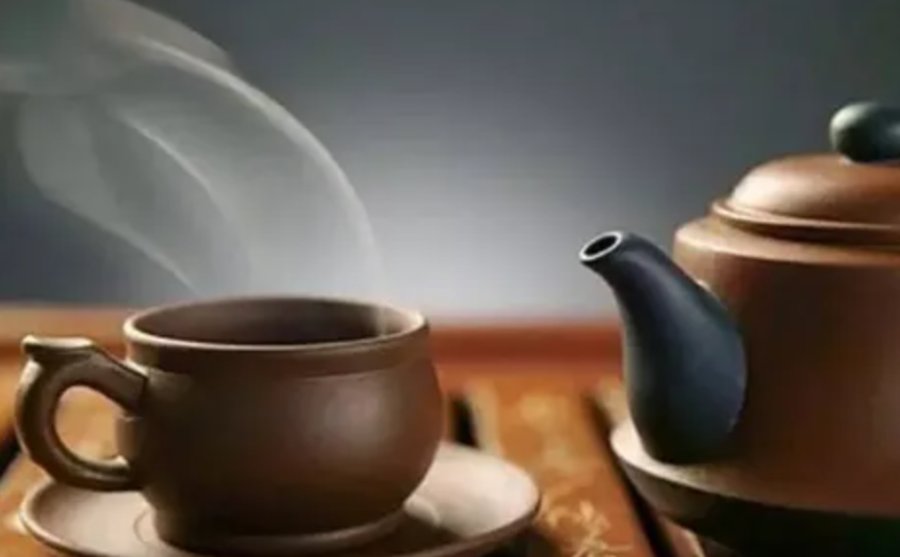Tea is Chinese “coffee”. Chinese medicine believes that tea is mostly bitter and clears the heart fire. Drinking tea properly can cure the heart fire. Modern research shows that tea polyphenols in tea can effectively reduce the accumulation of fat in the blood vessel wall, protect vascular endothelial cells, reduce the incidence of atherosclerosis, and have anticoagulant and antithrombotic effects. So for some patients with specific diseases, can tea be drunk? How to drink? There is a great way to this. such as kidney disease.
Professor Liu Xusheng from the Department of Nephrology, Guangdong Provincial Hospital of Traditional Chinese Medicine introduced that tea can reduce blood viscosity to prevent platelet adhesion and improve anticoagulation, effectively improve renal blood flow and glomerular basement membrane permeability, thereby reducing thrombosis Formation, from this point of view, drinking tea has a certain effect on preventing the progression and worsening of kidney disease. Of course, the premise is “drinking right”.

Internet pictures
How to drink tea properly?
Liu Xusheng reminded that, first of all, try to avoid drinking tea on an empty stomach – there is nothing in the abdomen, theophylline is absorbed faster, which will cause temporary symptoms of hyperadrenocorticism, and is prone to symptoms of palpitation.
Secondly, don’t drink tea after drinking. The claim that tea can cure hangovers is a long-standing misunderstanding. In fact, drinking tea after drinking not only can not cure the hangover, but also may damage the kidneys. Because the alcohol in wine will be converted into acetaldehyde, the alkaloids in tea have a strong diuretic effect, so that the toxic acetaldehyde will enter the kidneys before it can be decomposed, which will cause damage to the kidneys and damage the kidneys.
Again, try to drink as little strong tea as possible. Tea contains a variety of alkaloids, and the caffeine contained in it has the effect of stimulating the central nervous system. The stronger the tea, the more caffeine it contains, the greater the stimulation to the human body, and the higher the harm to the cardiovascular and cerebrovascular.
In addition, the temperature of tea should not be too hot, too hot tea can easily damage the esophagus of the human body and increase the risk of esophageal cancer.
Which tea to drink?
Traditional Chinese medicine believes that the human body is different from heat and cold, and the nature of tea is also divided into cool and warm. People with a hot constitution should drink cool tea, while those with a weak constitution should drink warm tea.
Green tea is an unfermented tea with cool and slightly cold nature, which can clear away heat and relieve summer heat, promote fluid and quench thirst. Green tea enters the liver, the liver is in charge of dredging and venting, and the orifices are opened in the eyes. Therefore, green tea can adjust the emotions, and can also clear the liver and improve eyesight. Because green tea is unfermented tea, the natural ingredients in the young leaves are preserved to the greatest extent, and the refreshing effect is better. Green tea is cold in nature, so people with weak spleen and stomach should not drink greedily.
Black tea is a fully fermented tea. The color of black tea is red in the heart, which corresponds to the heart. Traditional Chinese medicine teaches that the heart controls the blood vessels. Black tea is warm in nature. Black tea can warm the heart yang, warm the meridians, and warm the spleen and stomach. Modern research has found that black tea has more antioxidants and is good for the heart, and drinking black tea can reduce the risk of heart disease. Black tea has the effect of warming the stomach and benefiting the spleen, so it is suitable for people with deficient constitution. People with weak spleen and stomach can add some milk when drinking black tea, which can warm the stomach to a certain extent.
How do kidney friends drink tea?
Studies have shown that tea is rich in antioxidants, such as tea polyphenols, which is an efficient free radical scavenger, with anti-inflammatory, antioxidant and neuroprotective effects. The inflammatory response of the kidneys plays a role.
How should kidney friends drink tea? Liu Xusheng suggested that tea should be selected according to personal constitution. Those with a hot constitution can choose green tea, while those with a cold constitution or a weak spleen and stomach can choose to drink black tea.
Kidney friends who are prone to insomnia should avoid drinking tea before going to bed, and avoid using tea instead of warm water to deliver medicine, so as to avoid amino acids, vitamins, inorganic salts, tannic acid, volatile oils, and coffee in tea Due to, theophylline and other alkaloids interact with drugs. Drinking tea should be more than an hour away from taking medicine.
In addition, it is not recommended for kidney patients with edema to drink more tea, and strictly control the water intake.

Photo/Guangzhou Daily·New Flower City reporter: Chen Youzi
Drinking tea can affect blood potassium , Does blood phosphorus have any effect?
Literature data show that the average potassium content of general tea (dry products) is 1.5 grams per 100 grams, and the phosphorus content is 0.3 grams per 100 grams. Generally, the small package of tea is 5-10 grams), and the effect of drinking a small amount of tea on blood potassium and blood phosphorus is not high. However, if you are used to drinking strong tea for a long time, especially those with abnormal renal function, you should pay attention to the effect of drinking tea on blood potassium and blood phosphorus.
(Text/Guangzhou Daily Xinhuacheng reporter: Zhou Jieying Correspondents: Chen Linyi, Jiexina, Song Liping)